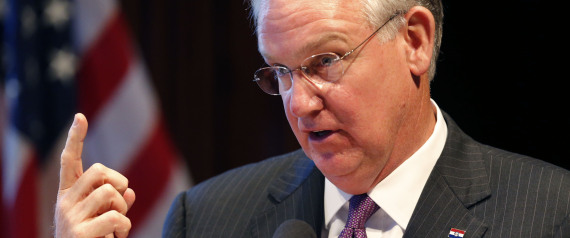 COLUMBIA, Mo. – Gov. Jay Nixon said Thursday critics of his plan to expand tax credits in an attempt to lure Boeing to Missouri are wrong to accuse him of handing out “corporate welfare.”
COLUMBIA, Mo. – Gov. Jay Nixon said Thursday critics of his plan to expand tax credits in an attempt to lure Boeing to Missouri are wrong to accuse him of handing out “corporate welfare.”
Earlier in the week, conservative groups like the Show-Me Institute and United for Missouri labeled Nixon’s plan to expand four exiting tax credits by as much as $1.7 billion over more than two decades as “corporate welfare,” a term often used by opponents of targeted tax incentives like the state has increasingly used.
“That is an attempted pejorative term that I don’t think adequately reflects what we’re doing here,” he said. “What we’re doing is we’re taking existing economic development programs – some of which were just strengthened in the last session by a bipartisan overwhelming majority of this legislature – and adding capacity to those for this one-time opportunity.”
Speaking with reporters after an education policy event at the University of Missouri, Nixon said the four programs – Missouri Works, Missouri Works Training, Missouri BUILD, and the Real Property Tax Increment Allocation Redevelopment Act – have built-in “taxpayer safeguards,” including one requiring “significant” investment and job creation before the state will offset some of their obligations.
“We’re not writing a check to anybody here,” he said. “What we’re saying is … make this investment, put folks to work, and that we will allow you to defray some of those significant investments by keeping a portion of some of the withholding taxes of those workers at those new jobs. That is a solid taxpayer safe way to move forward.”
United for Missouri, a group led by former House Budget Committee Chairman Carl Beardon, called on its members earlier this week to urge their lawmakers to “Stop the Governor’s Proposed Expansion of Corporate Welfare,” and criticizing Nixon for vetoing “broad based” tax policy changes like House Bill 253 earlier this year that would have halved corporate taxes.
Nixon scoffed at the idea that there was some ideological inconsistency there, calling House Bill 253 and the Boeing bill “two different things.”
“A broad based effort to take dollars out of the treasury with no guarantee of return is much different than using existing economic development programs we have that require investment and require a positive return prior to being able to use them — that’s just a much different discussion,” he said.
The bill has faced only mild opposition so far in the General Assembly, facing only eight no votes and no filibuster in the Senate on Wednesday. After receiving unanimous support in two House committees on Thursday, the bill’s passage is all but certain on Friday morning in the state House.
